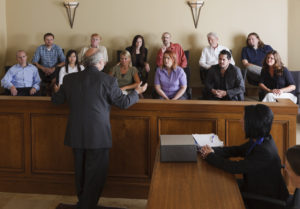 On a legal level, social media is starting to play a large and important role. People fail to understand, at times, that anything that is posted on social media is also subject to research, but that does not keep people from posting the personals of their daily lives. When you make your information available to the public, there is no “reasonable expectation of privacy.”
On a legal level, social media is starting to play a large and important role. People fail to understand, at times, that anything that is posted on social media is also subject to research, but that does not keep people from posting the personals of their daily lives. When you make your information available to the public, there is no “reasonable expectation of privacy.”
Potential Destruction of Evidence
When somebody is in the midst of a trial, sometimes they will work to destroy evidence of what they posted in the past. Sometimes this information is incriminating. They will thoroughly work to alter privacy settings, deactivate accounts, and delete accounts. However, people fail to realize that this is known as “spoliation of evidence” and can have civil and criminal penalties.
Social Media Information as Trial Evidence
Trial attorneys are always searching for information. This does not stop at investigating social media information of potential trial jurors. Jurors are actually restricted in their use of social media during a trial. If they act in misconduct, decisions could be reversed. These are things that must be remembered in the courtroom.
Of course, no social media can be introduced into the court of law without being authenticated. The author will come up and give testimony on the information in hopes that a verdict can be reached. If the author cannot be found, then another witness must testify that they know the author personally and that the evidence is true. If you are involved in a case and have questions regarding social media, give us a call today. We will help you throughout the process.




